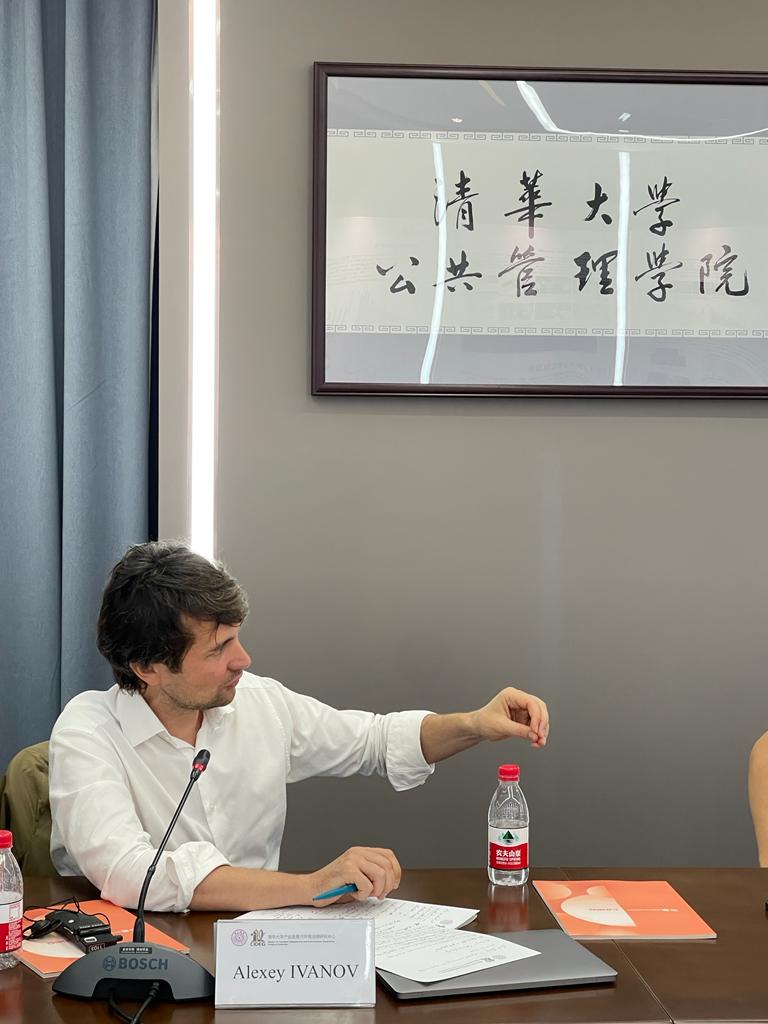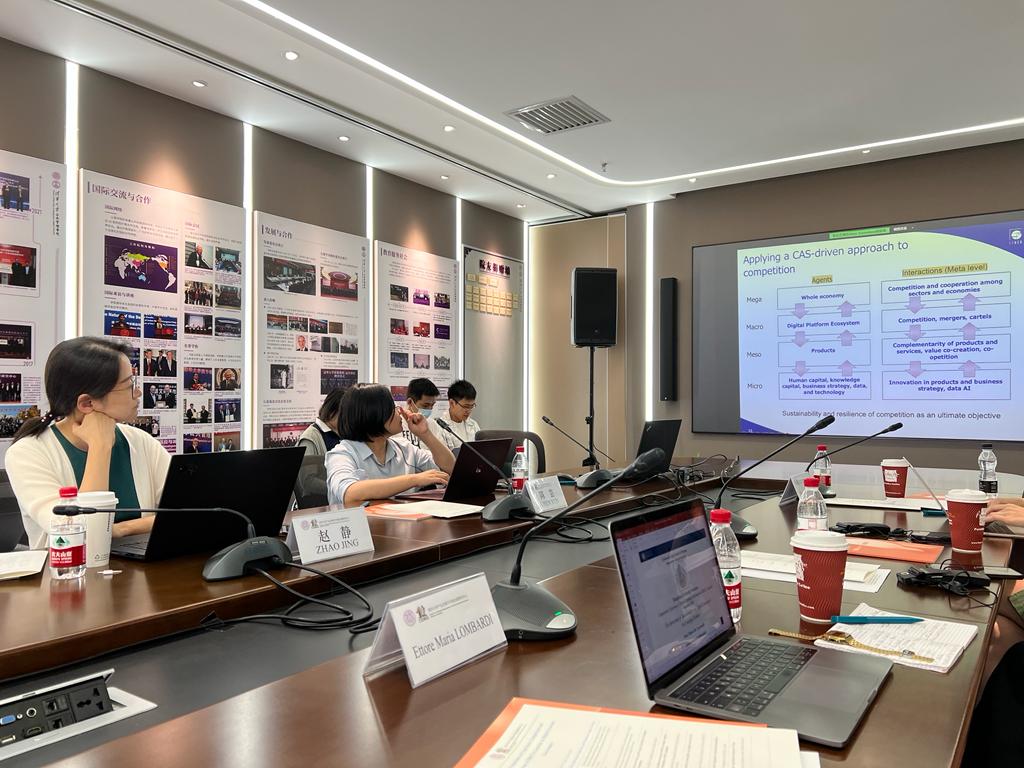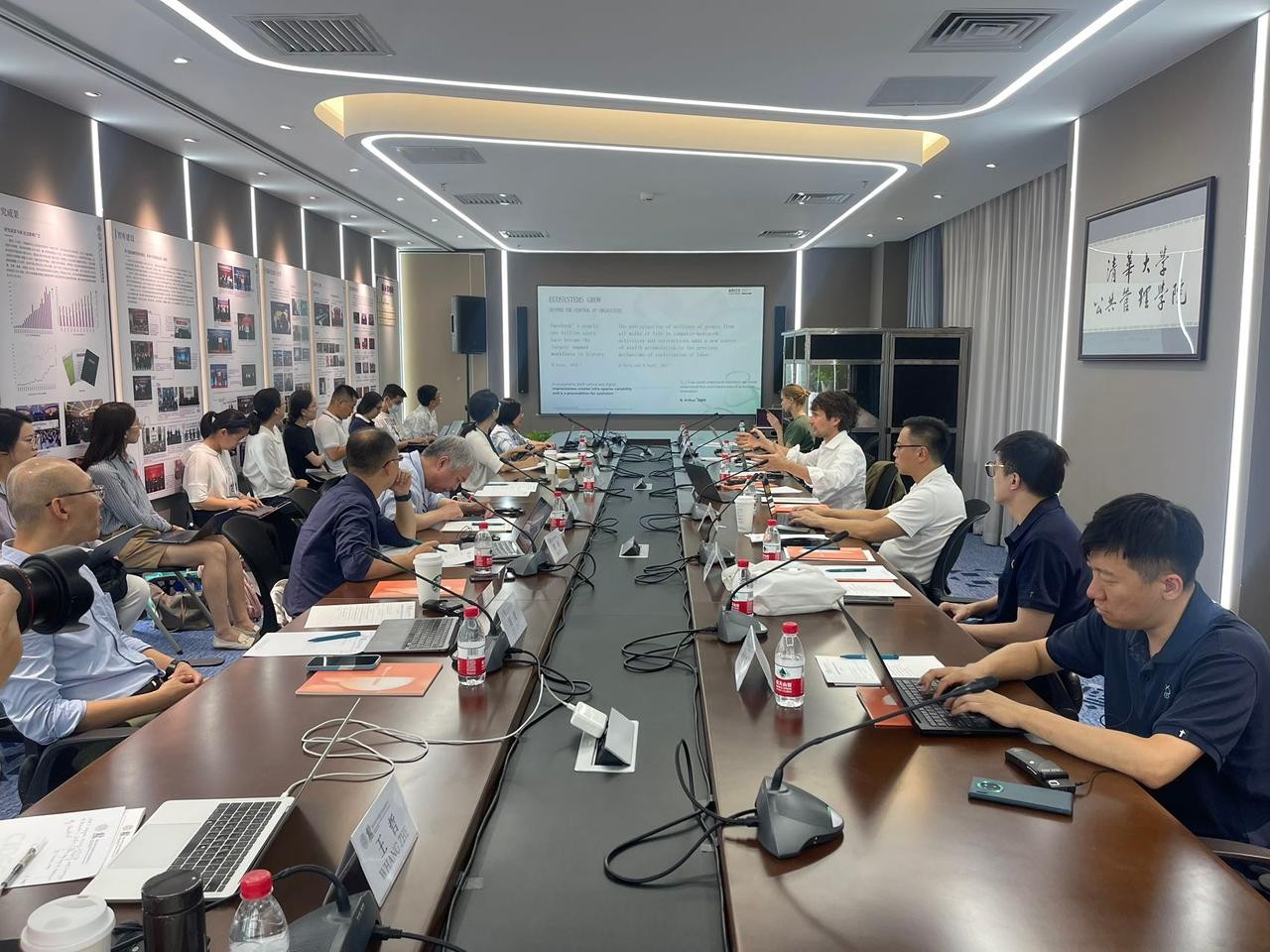On September 8, as part of a joint visit to China with the Federal Antimonopoly Service (FAS) of Russia, Alexey Ivanov, Director of the International BRICS Competition Law and Policy Centre, took part in a workshop entitled "Experience Comparison and Reference of BRICS Countries in Digital Economy Governance" at Tsinghua University, one of China's leading academic institutions.
Alexey Ivanov presented the ecoantitrust project that the BRICS Competition Centre is developing jointly with the International Institute for Applied Systems Analysis (IIASA). In today's dynamic and complex economy with a variety of agents that can change and alter the entire ecosystem, traditional antitrust tools are becoming less effective.
The ecoantitrust method, based on complex adaptive systems (CAS) theory, takes into account the flexible nature of digital platforms and provides a holistic view of the challenges in their functioning. Ecoantitrust proposes to analyze and regulate digital platforms using analogies between natural and digital ecosystems.

"Under this approach, the regulator acts more like a gardener, gently guiding and adjusting the development of the digital platform, treating it as a living developing organism. Modern digital companies define themselves as 'ecosystems' and have long used ideas from ecology and biology to organize their business processes. This forces antitrust authorities to rethink their methods of protecting economic competition as well,"
Ivanov emphasized.
Elena Rovenskaya, IIASA Program Director, elaborated on the application of complex adaptive systems theory and ecological science to explain how digital markets work. The CAS theory helps to build a multi-agent model that takes into account the peculiarities of digital ecosystems and helps to adapt regulatory tools to new realities.
"As part of the ecoantitrust project, we are also developing tools utilizing evolutionary game theory and agent-based modeling to simulate the development of multi-sided platforms,"
the speaker stressed.
The intersection of digital economy regulation and sustainable development goals was mentioned during the workshop by Ettore Maria Lombardi, Professor, Private Law, University of Florence (School of Law). In particular, he noted that the task of achieving sustainable development goals is addressed not only to business, but also to society as a whole, and the very concept of "sustainability" implies addressing not only climate change, but also pressing socio-economic issues.
"Sustainable development was defined in the World Commission on Environment and Development's 1987 report as 'development that meets the needs of the present without compromising the ability of future generations to meet their own needs'. Thus, it seeks to reconcile economic development with the protection of social and environmental balance,”
Mr. Lombardi said.
 Daria Kotova, an expert of the BRICS Competition Centre, presented a report on "Ride-Hailing Market Regulation in Russia and Kazakhstan". In the digital ride-hailing market it is clearly visible that antitrust regulators do not quite understand how to approach competition violations related to pricing on digital platforms, the speaker noted. The existing practice of agencies in this market is very few and has not led to any significant decisions.
Daria Kotova, an expert of the BRICS Competition Centre, presented a report on "Ride-Hailing Market Regulation in Russia and Kazakhstan". In the digital ride-hailing market it is clearly visible that antitrust regulators do not quite understand how to approach competition violations related to pricing on digital platforms, the speaker noted. The existing practice of agencies in this market is very few and has not led to any significant decisions.
"The ongoing probe into Yandex.Taxi in Kazakhstan is a chance for the regulator, given the mistakes of the past, to apply more sophisticated and effective market interventions, such as requiring the company to audit its algorithms responsible for pricing on the platform. Audit systems are just beginning to emerge — there are examples in China and the EU — and while this approach to regulation may seem more interventionist, it actually takes into account the adaptability and complexity of the digital economy much more than more classical methods of antitrust enforcement,"
emphasized Daria Kotova.
The event concluded with a presentation by Fu Hongyu, Deputy Director, Digital Economy Research Center, Alibaba Research Institute, on "Digital Platforms and Algorithm Governance in China."
The workshop was followed by a meeting between Alexey Ivanov and Xu Poling, Deputy Director of the Center for the Belt and Road Initiative (BRI) Studies at the Chinese Academy of Social Sciences (CASS). During the meeting, they discussed the development of the antitrust track within the framework of the BRI, as well as the use of antitrust tools to solve various problems in regional economic integration projects, including EAEU and BRICS.
The One Belt, One Road (OBOR) initiative was launched by the Chinese government led by Xi Jinping in 2013. The project refers to the initiative of jointly building the Silk Road Economic Belt, which links China with Europe through Central and Western Asia, and the 21st Century Maritime Silk Road, which connects China with Southeast Asian countries, Africa, and Europe.
The objectives of the OBOR strategy are to promote economic prosperity of the countries along the belt and road and regional economic cooperation, to strengthen exchanges and mutual learning between different civilizations, and to promote world peace and development. The strategy document issued by the National Development and Reform Commission (NDRC), the Ministry of Foreign Affairs and the Ministry of Commerce of the People's Republic of China notes that the OBOR initiative is open to all countries, international and regional organizations, and provides a basis for China's economic cooperation with interested states.



